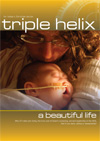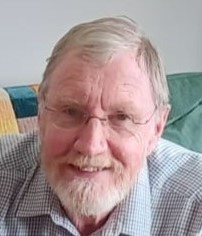Huw Morgan questions the way we think about working overseas.
How do Christian doctors know if they're called to work overseas? This question is often discussed amongst Christian medics and various aspects of what constitutes 'a call' are debated. I want to suggest that this is the wrong question. It sidesteps the wider issue of the responsibility rich, Western educated professionals have to serve their less fortunate neighbours in the resource-poor world.
Make no mistake; the global village we inhabit today means everyone is our neighbour, in the same sense that the Good Samaritan acted as a neighbour to someone of another culture who was in need, risking his own life and using his own resources.
Let us consider a few facts. In Europe there is an average of 25 doctors per 10,000 population. The figure is six for India and 0.2 for sub-Saharan Africa. Some 1.3 billion people, about 20% of the world's population, do not have access to basic healthcare. To meet this need around 4.3 million more healthcare workers are needed in resource-poor countries. It is a scandal that 6.9 million children died in 2011 (20,000 a day), 70% of them in Africa and South Asia. Some 0.3 million women a year die in childbirth, two million people from AIDS, a further one million from malaria and 5.8 million from trauma, 90% of which occurs in resource poor settings. (2)
Then consider the numerous commands in Scripture to serve the poor. Starting with the Law, (3) they run through the Prophets (4) and into the incarnation of Jesus who proclaimed himself to be fulfilling Isaiah's prophecy of bringing good news to the poor, freedom to the captives, sight to the blind and release for the oppressed. (5) The epistles pick up the theme, speaking of Jesus leaving the riches of heaven to die on the cross for us, becoming poor so that we might become rich. (6) John says, 'If anyone has material possessions and sees a brother or sister in need but has no pity on them, how can the love of God be in that person?' (7) Ron Sider comments, 'Concern for the poor is not merely an ethical teaching: it is first of all a theological truth, a central doctrine of the creed, a constantly repeated biblical teaching about the God we worship.' (8)
So we who are rich in money, material possessions and medical education, if we love Jesus, surely have an obligation to respond in some way to the healthcare needs of those in poorer countries; Scripture makes this clear. (9) Many of these are our brothers and sisters in Christ to whom we have a particular responsibility. (10) At a very minimum, we should support a Christian healthcare initiative or institution in a resource-poor country, as well as praying for their work. There's no shortage of mission hospitals and Christian community health programmes that we can help, and relatively small amounts of money can go a long way.
I believe all Western educated Christian doctors should consider spending at least part of their career serving in a resource-poor country. There are several points in a medical career when it is relatively easy to go overseas. The first is immediately after foundation training; going for six months or a year at this point is a great way to get some experience, provided you go somewhere where there will be support and supervision. A second opportunity comes after core training, and a third option is to take 'Out of Programme Experience' (OOPE) during specialist training; trainees are entitled to up to two years away and can then slot back into their training programme. Going after completion of training means you have skills and expertise to offer, but you will need to think about how you will get back into the NHS on return. It's possible to take a sabbatical year, or possibly a career break, from a substantive post in general practice or hospital medicine. This may be a challenging time to leave family and work commitments, but you go with more experience and wisdom and can contribute more in terms of education and management than when you are younger. My own first and life-changing experience of working in Africa was during a year's sabbatical after ten years of UK practice. Finally there is early retirement (or immediately after conventional retirement). Going at this point enables you to contribute at a senior level, possibly having a significant influence on policy, service development and medical education, which extends far beyond the individual patients that you treat.
Leaving a well-established life, elderly parents and possibly grandchildren, may make going at this point a challenge, but I can say from personal experience that it is well worth it. I left NHS practice at 50 to focus on overseas work with PRIME and other development agencies. Whenever you go, your involvement will hopefully have a long term influence on your giving, praying and global health perspective that will stay with you for the rest of your life. None of these opportunities to go, I suggest, require a special call. Rather they require an appropriate attitude of responsible stewardship of your education and skills in the face of the dire need for better healthcare globally – which should be a concern for all Christian doctors.
So what about 'the call'? If you are thinking about spending the majority of your career working in a resource-poor country, clearly you need a sense of particular calling to do so, as this will require family adjustments and challenges on a different scale to those raised by shorter periods overseas. There is still a place for doctors from developed countries who choose to spend most of their professional lives in less developed ones, and it has been my privilege to work alongside many such men and women in various countries over the last ten years.
You may have noticed that so far I have not used the words mission or missionary. I believe they can be unhelpful for Christian doctors considering working overseas. A missionary is one who is sent, and wherever you work, you should have the conviction that it is where you have been sent by God at that particular time. If you don't, think about going somewhere else! For most of us, it is more appropriate to think about where and when we should work overseas in terms of stewardship; stewardship of our education, our skills, and our ability to serve the poor.
So if you think that the fact that you don't have 'a call' to be a missionary in a less developed country means you can forget about the medical needs overseas, think again. Christian stewardship requires that all Christian doctors respond in some way to the needs of the poor in our global village. The CMF website (www.cmf.org.uk) is a good place to start looking for your opportunity. Or, if you are a medical educator, get in touch with PRIME.
Serving overseas is not all about sacrifice and hardship. It is an inestimable privilege to work amongst those who have virtually nothing in terms of material possessions and to help colleagues who are striving to serve them in difficult circumstances. This is the real world, where the light of Christ can shine brightly, undimmed by the deadening materialism and dross of our gaudy consumerist society. Dare to step outside your comfort zone and spend time serving where the needs are greatest. We in the rich world have been given much, and as Jesus said, 'From everyone who has been given much, much will be demanded'. (11) Don't wait for a call, just be a responsible steward of what you have.
Huw Morgan is a retired GP and GP Training programme director based in Abergavenny. He works with PRIME, and spent much of the last ten years in India and Nepal. He is chair of the CMF International Committee.
































